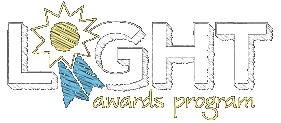2025, Social & Emotional Learning, Santa Clara County, Elementary School, Funded Projects
Teacher and administrator burnout is growing at our school. Our nucleus of trained teachers will improve the school’s response to challenging student behaviors and address key factors, such as chronic absenteeism and family engagement. We will work with a consultant to implement Collaborative & Proactive Solutions (CPS, via https://livesinthebalance.org), partnering adults and students to find agreed-upon solutions, while also building student agency and problem-solving. We will take a case-study approach with target students, apply it broadly in our classrooms and collaborate weekly to debrief. This project will invest us with purpose and enthusiasm to revitalize the school community in service of students.
2024, Social & Emotional Learning, Alameda County, Elementary School, Funded Projects
This project aims to develop and implement DEI (Diversity, Equity, and Inclusion) curricula through project-based learning that incorporate diverse perspectives, cultures, and voices in a K-8 Mandarin immersion school.
Reading/Writing, Santa Clara County, 2024, Elementary School, Funded Projects
Our team is committed to doing all we can to ensure that all our students are successful readers. We are setting out to transform our kinder-1st grade literacy program by doing a series of personalized professional development with The Reading League.
Reading/Writing, San Francisco, 2024, Elementary School, Funded Projects
This project serves to enhance our professional capacities as teachers by providing us with the requisite knowledge and skills to instruct emergent biliteracy students effectively.
Reading/Writing, Alameda County, 2024, Elementary School, Funded Projects
We will reinvigorate SEED’s mission by designing Project-Based Learning units infused with best practices in Dual Language and Universal Design for Learning (UDL).
Alameda County, Social & Emotional Learning, 2023, Elementary School, Funded Projects
Play theorist Brian Sutton-Smith concluded, ‘The opposite of play is not work–the opposite of play is depression.’ While research supports this, traditional schools continue to treat play as frivolous and double down on the pressure to raise students’ standardized test scores.
